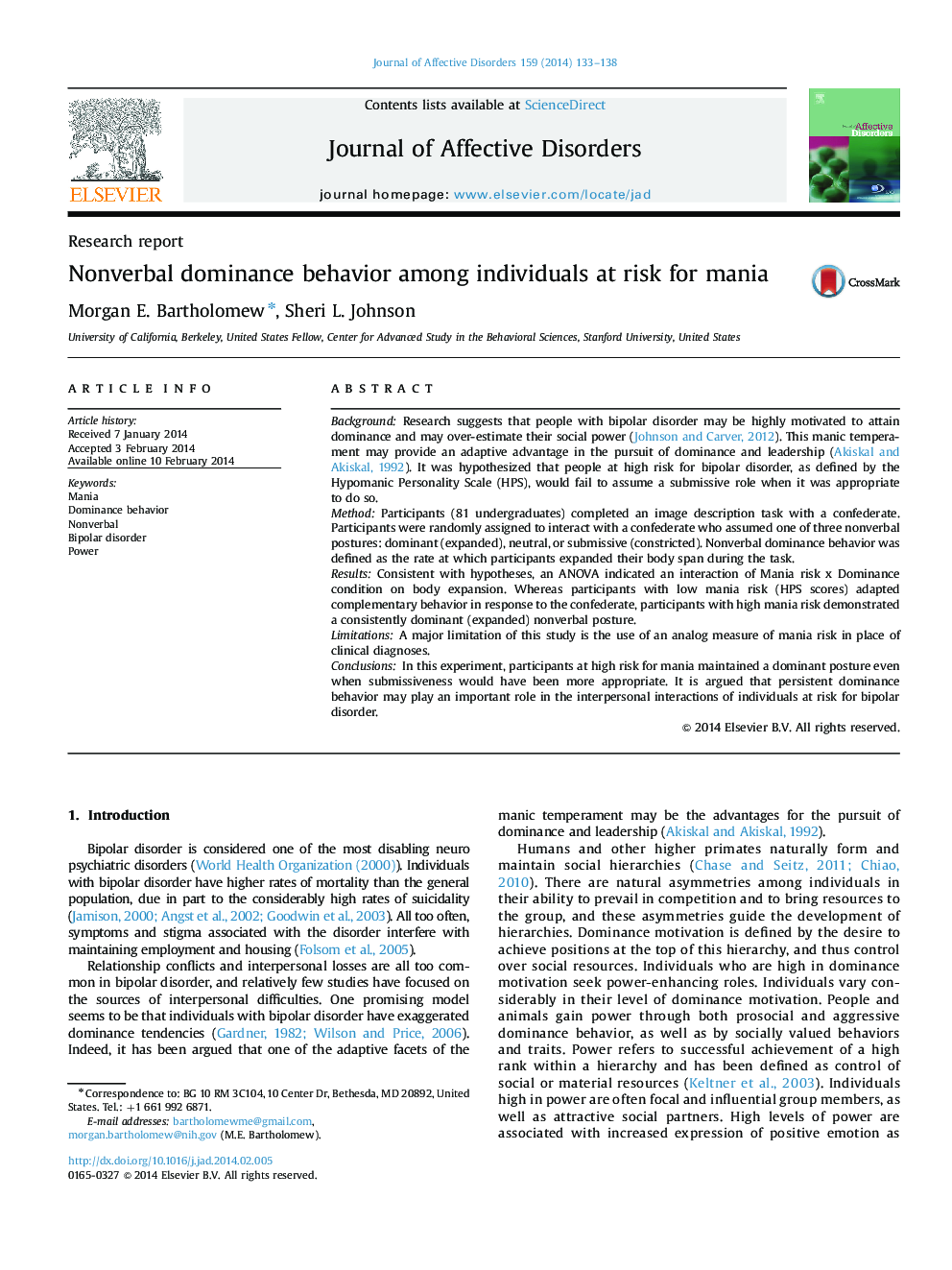| کد مقاله | کد نشریه | سال انتشار | مقاله انگلیسی | نسخه تمام متن |
|---|---|---|---|---|
| 4186032 | 1608166 | 2014 | 6 صفحه PDF | دانلود رایگان |
BackgroundResearch suggests that people with bipolar disorder may be highly motivated to attain dominance and may over-estimate their social power (Johnson and Carver, 2012). This manic temperament may provide an adaptive advantage in the pursuit of dominance and leadership (Akiskal and Akiskal, 1992). It was hypothesized that people at high risk for bipolar disorder, as defined by the Hypomanic Personality Scale (HPS), would fail to assume a submissive role when it was appropriate to do so.MethodParticipants (81 undergraduates) completed an image description task with a confederate. Participants were randomly assigned to interact with a confederate who assumed one of three nonverbal postures: dominant (expanded), neutral, or submissive (constricted). Nonverbal dominance behavior was defined as the rate at which participants expanded their body span during the task.ResultsConsistent with hypotheses, an ANOVA indicated an interaction of Mania risk x Dominance condition on body expansion. Whereas participants with low mania risk (HPS scores) adapted complementary behavior in response to the confederate, participants with high mania risk demonstrated a consistently dominant (expanded) nonverbal posture.LimitationsA major limitation of this study is the use of an analog measure of mania risk in place of clinical diagnoses.ConclusionsIn this experiment, participants at high risk for mania maintained a dominant posture even when submissiveness would have been more appropriate. It is argued that persistent dominance behavior may play an important role in the interpersonal interactions of individuals at risk for bipolar disorder.
Journal: Journal of Affective Disorders - Volume 159, 20 April 2014, Pages 133–138
